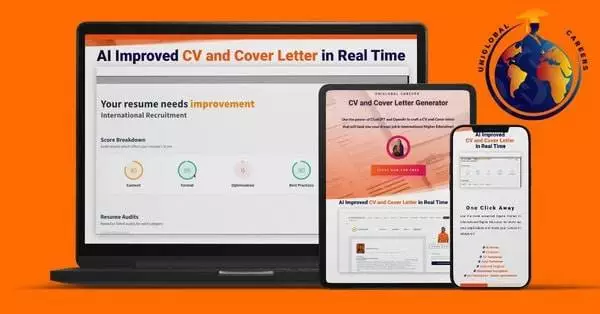Networking is a crucial element in any industry, and global higher education is no exception. Fostering meaningful connections with professionals and institutions across the globe can open doors to diverse opportunities for career growth and collaboration. In this article, we’ll explore some proven strategies for networking in global higher education and how they can help you achieve your professional goals.
Understanding the Importance of Networking in Higher Education
Networking is an essential tool for career development in higher education. According to a survey conducted by the U.S. Bureau of Labor Statistics, a majority of job openings are filled through networking rather than through job board listings or other recruitment channels. Building a strong professional network can help you find new job opportunities, identify potential collaborators for research projects, and expand your knowledge of global trends in your field.
The role of networking in career development
Your professional network can provide a support system for career growth, and it can help you gain valuable insights from other professionals or institutions in your field. By attending conferences, seminars, or academic events, you can meet others in your field and establish connections that can help you achieve your career goals. Networking can also help you build a reputation and become known for your expertise, which increases your profile and can lead to new opportunities.

Networking can also help you stay up-to-date with the latest trends and developments in your field. By connecting with other professionals, you can learn about new research, emerging technologies, and other important topics that can help you stay ahead of the curve.
Building a strong professional network
Building a strong professional network requires a combination of developing relationships, sharing your expertise, and actively seeking new connections. The best way to start is by identifying and targeting individuals or institutions that align with your professional interests and goals. This can be done by attending conferences, seminars, or academic events, and reaching out to people through social media platforms or email.
Another way to build your network is by volunteering for professional organizations or serving on committees. This can help you meet others in your field and establish connections that can lead to new opportunities.
Networking for research and collaboration opportunities
Networking is essential for researchers looking for opportunities to collaborate on academic projects or studies that require cross-disciplinary expertise. By expanding your network, you will be able to identify researchers in your field who might have shared interests and who could potentially add value to your projects. Building relationships with such individuals can help you access funding opportunities, research grants, and other important resources.
Networking can also help you find mentors who can provide guidance and support as you navigate your career. By connecting with experienced professionals in your field, you can gain valuable insights and advice that can help you achieve your goals.

In conclusion, networking is a critical component of career development in higher education. By building a strong professional network, you can open doors to new opportunities, gain valuable insights, and stay ahead of the curve in your field.
Identifying Your Networking Goals
While building a network in higher education is essential, it’s equally important to have a clear understanding of what you want to achieve through networking. By identifying your networking objectives, you’ll be able to target and prioritize your networking efforts.
Establishing your networking objectives
Consider your professional goals and think about how broadening your network can help you achieve them. Do you want to find job opportunities? Are you looking for ways to enhance your research? Perhaps you want to connect with individuals who share your research interests. Whatever your objectives may be, identifying specific goals will help you make the most of your networking efforts.
For example, if you’re looking for job opportunities, your networking objectives may include connecting with individuals in your field who work at institutions you’re interested in. If you’re looking to enhance your research, your objectives may include connecting with individuals who have expertise in your research area.
Assessing your current network
Before you start expanding your network, take stock of the relationships you already have. Consider the people you have worked with in the past, colleagues at your current or previous institutions, and online connections. This will help you identify any gaps in your network.
For example, you may realize that you don’t have any connections in a particular institution or research area. This will give you a starting point for expanding your network and identifying individuals to connect with.
Mapping out your ideal network
Once you have established your goals and assessed your current network, map out your ideal network. Identify individuals and institutions whose work aligns with your professional interests and goals.
For example, if you’re interested in a particular research area, you may want to identify individuals who have published in that area or institutions that have research programs in that area. If you’re looking for job opportunities, you may want to identify individuals who work in your desired field or at institutions you’re interested in.
Remember, networking is not just about making connections. It’s about building relationships with individuals who can help you achieve your professional goals. By identifying your networking objectives, assessing your current network, and mapping out your ideal network, you’ll be able to make the most of your networking efforts and build meaningful relationships with individuals in your field.
Utilizing Online Networking Platforms
Online networking platforms are becoming increasingly popular and offer a convenient way to build and maintain professional connections. With the rise of remote work and virtual communication, online networking has become an essential tool for professionals across all industries.
Whether you are a higher education professional, a researcher, or simply looking to expand your professional network, there are a variety of online networking platforms available to help you achieve your goals.
LinkedIn for higher education professionals

LinkedIn is a popular online networking platform for professionals, and higher education professionals are no exception. With over 700 million users, LinkedIn provides a vast network of potential connections and opportunities.
To make the most of LinkedIn, it is important to create a comprehensive profile that outlines your academic qualifications, your research, and your professional interests. This will help you to connect with other professionals in your field and showcase your expertise.
Joining relevant groups that align with your interests can also provide opportunities to connect with other professionals in your field. These groups can be used to share knowledge, ask for advice, and build relationships with other members.
ResearchGate and Academia.edu for researchers
ResearchGate and Academia.edu are social networking platforms specifically designed for researchers. These platforms enable researchers to share their work, collaborate with other researchers, and access a broad range of research resources.
ResearchGate is the largest professional network for scientists and researchers, with over 17 million members. It provides a platform for researchers to share their work, ask and answer questions, and collaborate with others in their field.
Academia.edu is a platform that enables researchers to share their research papers and connect with other researchers in their field. It also provides analytics on the impact of research papers, allowing researchers to track the reach and influence of their work.
Twitter for academic discussions and connections
Twitter is a powerful tool for academics looking to engage in lively discussions about current research, new developments in their fields, and other topics of interest. With over 330 million active users, Twitter provides a vast network of potential connections and opportunities.

To make the most of Twitter, follow individuals or institutions that align with your interests, and join relevant hashtag conversations to build connections with other professionals in your field. Twitter can also be used to share your own research and engage with others in your field.
Overall, online networking platforms provide a convenient and effective way for professionals to build and maintain connections, share knowledge, and advance their careers. By utilizing these platforms, you can expand your network, stay up-to-date on the latest developments in your field, and showcase your expertise to a wider audience.
Attending Conferences and Events
Attending conferences and events is an excellent way to build your network in the academic world. It provides you with the opportunity to meet new people, learn about new research, and share your own work. Attending conferences can also help you stay up-to-date with the latest developments in your field, and can be a great way to get feedback on your research from experts in your area.
Selecting the right conferences for your goals
When selecting conferences to attend, there are several factors to consider. First, think about your professional goals and research interests. Look for conferences that align with your research interests and where you will have an opportunity to connect with individuals or institutions that are relevant to your field. Consider the location of the conference, the size of the conference, and the types of sessions that will be offered.
Attending conferences can be expensive, so it’s important to choose the right ones. Look for conferences that offer travel grants or scholarships, or consider applying to present your own work at the conference to help offset the costs.
Networking strategies for conferences
It’s always best to come prepared when attending conferences. Before the event, research the individuals and institutions that will be in attendance and identify the ones with whom you would like to connect. Reach out to these individuals ahead of time to schedule a meeting or coffee chat during the conference.
During the conference, participate in panel discussions, present papers, and engage in informal conversations to build relationships with other attendees. Attend social events and receptions to meet new people and expand your network. Remember to bring plenty of business cards and be prepared to follow up with new contacts after the conference.
Leveraging conference connections post-event
After the conference is over, it’s vital to follow up with any connections you made. Send personalized messages thanking those with whom you connected, and consider finding ways to collaborate with them in the future, whether through research projects or other professional opportunities.
Stay in touch with your new contacts by connecting on social media or scheduling follow-up meetings. Remember that building a strong network takes time and effort, but attending conferences can be a great way to get started.
Building Relationships with International Partners
Building relationships with international partners is an excellent way to expand your professional network and gain new perspectives on your work. In today’s globalized world, it is more important than ever to connect with people from different cultures and backgrounds. Here are some strategies for building relationships with international partners.
Collaborating with International Institutions
Collaborating with international institutions can lead to exciting opportunities for research projects, joint publications, and faculty exchanges. By partnering with institutions from different countries, you can gain access to new resources, expertise, and perspectives. To get started, do some research on institutions that align with your research interests and start building relationships with faculty members and administrators. Attend conferences and events where you can meet potential partners and discuss potential collaborations. Consider reaching out to your professional network or alumni associations to find connections in other countries.
When collaborating with international partners, it is important to be aware of cultural differences and communication styles. Make sure to establish clear expectations and goals upfront, and be open to different approaches and perspectives. Take the time to learn about your partner’s culture and customs, and be respectful of their values and beliefs.
Participating in Study Abroad Programs
Many higher education institutions offer study abroad programs for students and faculty. Participating in these programs can provide you with the opportunity to build connections with international colleagues, learn about other cultures, and gain new perspectives on your field of interest. Whether you are a student or a faculty member, studying abroad can be a transformative experience that broadens your horizons and enhances your professional development.
While participating in a study abroad program, make an effort to connect with local professionals and researchers in your field. Attend conferences and events, and reach out to colleagues at local institutions. Take advantage of any opportunities to collaborate on research projects or exchange ideas. By building relationships with international colleagues, you can expand your professional network and gain valuable insights into your field.
Engaging in Cross-Cultural Research Projects
Participating in cross-cultural research projects can provide an opportunity to gain fresh perspectives on research problems and learn different approaches to solving them. Finding international partners for such projects can also lead to valuable professional connections. To get started, consider attending conferences or events focused on your research area, and look for opportunities to connect with researchers from other countries. You can also reach out to your professional network or alumni associations to find connections in other countries.
When engaging in cross-cultural research projects, it is important to be aware of cultural differences and communication styles. Make sure to establish clear expectations and goals upfront, and be open to different approaches and perspectives. Take the time to learn about your partner’s culture and customs, and be respectful of their values and beliefs.
Building relationships with international partners takes time and effort, but the rewards can be significant. By connecting with people from different cultures and backgrounds, you can expand your professional network, gain new perspectives on your work, and contribute to a more globalized and interconnected world.
Nurturing Your Network for Long-Term Success
Networking requires consistent effort and maintenance to ensure that connections and relationships are thriving. Here are some strategies for nurturing your network for long-term success.
Staying in touch with your connections
Staying in touch with your connections is critical to maintaining lasting professional relationships. Consider sending personalized messages to check in with them and congratulate them on any new professional achievements.
Providing value to your network
Networking requires a win-win approach. When reaching out to your connections or seeking new ones, find ways to provide value to them. This can involve sharing new research or providing advice or support when needed.
Continuously expanding and diversifying your network
Your professional network should never stop growing. Continue to seek out new connections and opportunities to expand your network. Diversifying your network also means seeking out connections from different cultures, backgrounds, and disciplines.
Conclusion
Networking is a powerful tool for career growth and success in global higher education. By using a range of networking strategies, including online platforms, conferences, collaborating with international partners, and consistently nurturing your network, you can build a strong professional network that will open up diverse opportunities for career growth, research, and collaboration.


